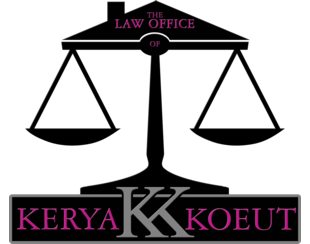
Family Law

In Florida, a divorcing couple is required to divide all of their assets and liabilities including, but not limited to, real estate, household goods, furnishings, automobiles, retirement and investment accounts, credit card debt, pensions, stock options and profit sharing plans.
If a divorcing couple has children, the issues of time sharing, child support, day care expenses, schooling expenses and health insurance for the children must be resolved on both a temporary and permanent basis.
The issue of spousal maintenance or alimony must also be addressed, if there has been a lengthy marriage and one party earns substantially more than the other.
Child Custody and Visitation
There are different types of Parenting Plans and Times haring arrangements which must be made in all family proceedings involving children. (Effective October 1, 2008, Florida no longer designates one parent as the custodian, formerly known as the “primary residential parent”, and the other as the visiting parent, formerly known as the “secondary residential parent”).
Parenting Plans are designed to set out specific details regarding the children’s education, extracurricular activities, daycare or after care and health care decisions. Within each Parenting Plan, “time sharing” arrangements will set out specific days and times each parent will spend with their children throughout the year, including the division of holidays.


Child Support
Child support in Florida is designed to financially assist the majority timesharer with the child or children’s basic needs of housing, food and transportation.
However, the parent receiving child support is not obligated to provide an accounting to the payer parent of how the funds are expended.
Child support in Florida is calculated according to the Florida Child Support Guidelines. Normally, the parent who is awarded majority time sharing with the minor children receives child support from the other parent.
Alimony
Alimony is a situation wherein one spouse helps to support the other spouse during and after the divorce. Alimony depends on many factors such as the length of the marriage, the need for support, the earning capacity of the spouse, the amount of education and the disparity in earnings between the parties.
There are six types of alimony in Florida: Permanent Periodic, Periodic, Lump Sum, Rehabilitative, Bridge-the-Gap and Durational. Alimony awarded after a divorce can be temporary or permanent and is designed to provide the lower-income spouse with money for living expenses and maintaining the marital lifestyle.


Relocation
When the parents of children are married to each other or where there is already a court order in place for timesharing or visitation one parent cannot relocate the children more than fifty miles from the child’s current residence without the other parent’s permission or a Court Order.
Florida child relocation laws have specific notice requirements and time limits to file an objection to a proposed relocation pursuant to the Florida Statutes. If a parent does relocate a child in Florida without the other parent’s permission or a Court Order, the non-relocating parent can obtain an Order requiring the children to be returned.
Domestic Violence
Domestic violence (or domestic abuse) is when two people are involved in physical violence or infliction of fear or threat of physical harm. In Florida, the abused party may seek a Domestic Violence Injunction to protect the person and/or children from harm.
There are four types of domestic violence legal cases regarding Injunctions for Protection in Florida: domestic violence, repeat violence, dating violence and sexual violence.


Step-Parent Adoptions
Adoption can be one of the most wonderful and rewarding things a person can do for a child and their family. Our law firm represents families for step parent adoptions. We do not do open and private adoptions. Our firm has experience as both a Guardian ad Litem and Attorney at Litem, in addition, as a prosecutor in the child welfare division of the Pinellas County State Attorney’s Office. It gives us great pleasure to take on a step parent adoption case where the end result is a child being adopted by a loving step parent.
Paternity Disputes
A paternity dispute issue is a cause of action that involves either the mother wanting to determine who the father is of the child or a father who wants to determine whether or not a child is his biological child.
According to Florida paternity testing laws, paternity can be acknowledged by stipulation or a DNA test can be performed. If a man is found by the Florida Court to be the father, then he has a legal duty to support the child.


Modification/Enforcement of Orders
Once a Judge has entered a Final Order, whether it be a Final Judgment of Dissolution of Marriage, Modification of Child Support regarding a child support order, including custody modification, or otherwise, the parties must obey the Order. If a party wishes to modify the Order, he or she must show that there have been a substantial change in circumstances since the entry of the original Order. If the Order sought to be modified involves children, the moving party will also have to show that the change is in the child’s best interest.
With regard to alimony and spousal support, if the party paying the support (obligor) has a diminished ability through no fault of his or her own and the change is “substantial”, then that party may seek a downward modification and/or termination of the obligation.
Dependency / Termination of Parental Rights
Dependency proceedings arise when the State has determined that a child or children will suffer irreparable harm due to child abuse unless the State intervenes. The State may or may not remove the children from the parents or custodians, depending on the severity of the allegations made against the parents or custodians. The State’s goal is to resolve the situation giving rise to the allegations and return the children to the parents or custodian. This is accomplished by the parents completing a Case Plan given by the State, which typically include an in depth parenting course, proven ability to maintain a stable household, and maintain employment. The Case Plan may address any other issues such as domestic violence, counseling, anger management and drug or alcohol addiction.


